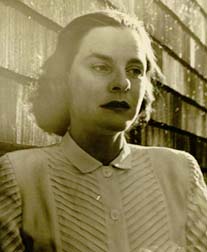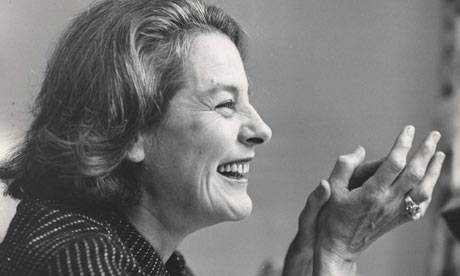
Memories of a Catholic Girlhood, the most powerful of McCarthy's published writings, is a compelling account of her early years through to her adolescence. Beginning her narrative with a careful, italicized address to the reader, the author sets the tone for the following eight chapters by reflecting that “to care for the quarrels of the past . . . is to experience a kind of straining against reality, a rebellious nonconformity that, again, is rare in America."
 |
| St Stephen's |
Looking back, I see that it was religion that saved me. Our ugly church and parochial school provided me with my only aesthetic outlet, in the words of the Mass and the litanies and the old Latin hymns, in the Easter lilies around the altar, rosaries, ornamented prayer books, votive lamps, holy cards stamped in gold and decorated with flower wreaths and a saint’s picture. This side of Catholicism, much of it cheapened and debased by mass production, was for me, nevertheless, the equivalent of Gothic cathedrals and illuminated manuscripts and mystery plays. I threw myself into it with ardor, this sensuous life ... .
What's particularly fascinating about this book is how McCarthy takes all the choices she makes as a memoirist and subjects them to intense scrutiny. She discusses the temptation to fictionalise, the reliability of memory, the reasons to include or exclude information, the problematic process of re-shaping events and recollections into a cohesive narrative.
From Paula Becker on HistoryLink.org
"Mary Therese McCarthy was born on June 21, 1912, at Minor Hospital in Seattle. Her parents were Seattle native Tess Preston McCarthy (1888-1918) and Roy McCarthy (1880-1918), son of a family of successful grain merchants in Minneapolis.
Tess, whose mother, Augusta Morgenstern Preston (1865-1954), was Jewish and whose father, prominent Seattle attorney Harold Preston (1858-1938) was Protestant, had converted to Catholicism at the time of her marriage. Mary was baptized at St. James Cathedral in Seattle by Father Noonan.
 |
| Tess & Mary |
From a Dickens Novel
The four orphaned children were not told that their parents had died. Their paternal grandparents put them in the care of Margaret and Meyers Shriver, a paternal great-aunt and her husband, then in their mid-50s.
Of her years in Minneapolis McCarthy later wrote, "It was as though these ignorant people, at sea with four frightened children, had taken a Dickens novel -- Oliver Twist, perhaps, or Nicholas Nickleby -- for a navigational chart" (Memories ... p. 64). Her account of the treatment she and her three younger brothers received includes food deprivation, corporal punishment, being locked outside for hours no matter what the weather, having their mouths taped shut at night to prevent mouth breathing, and other acts of cruelty. When Mary, then age 10, was awarded a $25 prize in a statewide essay contest, her great-uncle took the money and "furiously beat me with the razor strop -- to teach me a lesson, he said, lest I become stuck up" (Memories ... p. 63).
In 1923 Mary and her brother Kevin eventually were able to convey their terrible situation to their visiting maternal grandfather. Kevin and Preston were sent to a Minnesota boarding school. Sheridan, the youngest brother (whose treatment was apparently less barbarous), remained with the Shrivers. Mary returned to Seattle to live with her maternal grandparents."
l
 MinnPost illustration by Andy Sturdevant
MinnPost illustration by Andy Sturdevant
The first part of 'Memories of a Catholic Girlhood' takes place in Minneapolis, primarily within a 10-block radius of the Whittier neighborhood.
l
 MinnPost illustration by Andy Sturdevant
MinnPost illustration by Andy SturdevantThe first part of 'Memories of a Catholic Girlhood' takes place in Minneapolis, primarily within a 10-block radius of the Whittier neighborhood.






















